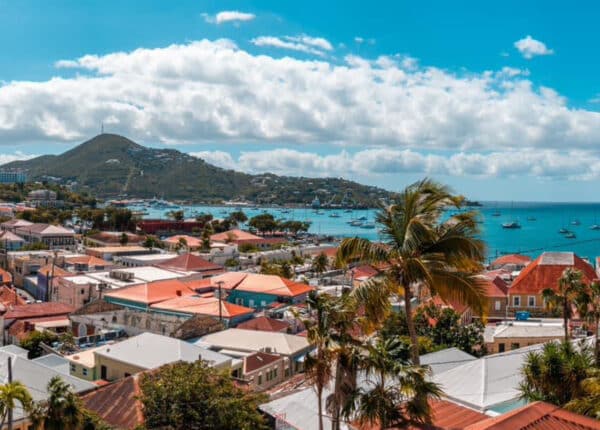By Dennis Chung
CJ Contributor
ACCORDING to the recently released 2012 Survey of Living Conditions (SLC), Jamaica has recorded an increase in poverty levels between 2009 and 2012.
“The all-Jamaica individual poverty prevalence increased by 2.3 percentage points relative to 2010 to reach 19.9 per cent,” the survey stated. This was not totally unexpected, as the global recession hit us in 2008, and capital markets were closed to us amidst a stalled International Monetary Fund (IMF) agreement up to 2013. So it was unlikely that, without global capital market support, Jamaica would have seen any improvement in poverty levels.
One of the primary reasons for this is that , since the 1970s, Jamaica has managed to see improvements in poverty levels only as a result of increased borrowing rather than productivity improvement. That, however, was not sustainable as it was not based on earnings.
So, at the heart of our poverty challenge is the fact that since the 1970s, productivity levels, and labour productivity in particular, have been on a downward trend. As a result, Jamaican-produced goods and services have become less competitive globally, and this has contributed to the increased levels of poverty that we continue to experience.
The only way for us to overcome this poverty challenge is to increase productivity, and in particular labour productivity. For us to do this we have a lot of catching up to do. In developed countries robots are now being used instead of humans in warehousing, agricultural production, and many other industries.
In the meantime, we are grappling with an unemployment rate, hovering around 12 per cent, and relatively low literacy levels. Add to that equation the indiscipline of our labour force and the need for labour reform, and you see the challenge we have with labour and labour productivity.
It is important that we understand this, as the only way for us to sustainably reduce poverty, and even more if we are to improve per capita GDP to the levels of comparable countries, is if we are to significantly increase labour productivity. This is because earnings are a function of productivity, and therefore average wage levels will not increase (without debt) if we do not see first an increase in labour productivity.
The way we have chosen in the past to reduce poverty and increase earnings is primarily through the welfare influence of the State. What we have done is borrowed money (resulting in a $2-trillion debt today) and distribute it through government activity and programmes, with no relation to what the most productive use of that debt is. The result being that we are not able to pay back the debt, culminating in a debt burden that is fiscal, economic, and social.
Now that we have finally chosen the path to reduce our debt burden, and bring about the necessary fiscal reform, it was always going to be inevitable that we would see an increase in poverty levels. This is especially so during the period of the SLC, where we had no international capital support (debt) and there was an economic recession.
From 2012 to now, we have seen where the economy has made fiscal and monetary improvements, after the IMF agreement got back on track. The result has been improvements in the macroeconomic and trade indicators. But this improvement has not been as a result of economic expansion, but rather contraction. This, of course, was not unexpected, as there were so many inefficiencies in the system that it was inevitable that the economy had to contract before it started to expand, and particularly since much of the economy depended on debt, from which we are trying to wean ourselves, just like a drug addict going through withdrawal symptoms.
This, however, is not a sustainable path either, as we could contract to a point where it becomes difficult to start growing again. We are definitely not yet at that point, but you don’t wait until you are weakest to try and regain your strength.
I believe the necessary legislative and fiscal reforms are being made, but the major challenge that we will face centres around labour productivity in both the public and private sectors.
The greatest challenge we will face to the turnaround of our economic fortunes is the labour force, and how we improve labour productivity. We must find a way to maximize the productivity of labour, especially in a world where menial tasks are being automated. This is also the only way to reduce poverty, as reducing unemployment by providing low-paying jobs does not reduce poverty, but institutionalizes it instead.
So one of the first challenges we have is improving not just the literacy rate, but more importantly training our labour force to become problem-solvers and innovators. This must be one of the primary focuses of learning institutions.
Secondly, we need to use our scarce resources to focus education around the skill sets that we will require to expand our economy. It makes no sense using scarce government resources to educate people in a field where there will be very little or no demand for the skills.
Finally, as a general comment, we must quickly implement the labour market reform called for in the economic programme/IMF agreement.
There are many other initiatives I can think of that would contribute to improved labour productivity, but these are some main initiatives to focus on. What is important for us to understand, though, is that the only way to reduce poverty sustainably is to focus on improving the labour factor productivity to globally competitive levels.
Dennis Chung is a chartered accountant and is currently Vice President of the Institute of Chartered Accountants of Jamaica. He has written two books: Charting Jamaica’s Economic and Social Development – 2009; and Achieving Life’s Equilibrium – balancing health, wealth, and happiness for optimal living – 2012. Both books are available at Amazon in both digital and paperback format. His blog isdcjottings.blogspot.com. He can be reached at drachung@gmail.com.







